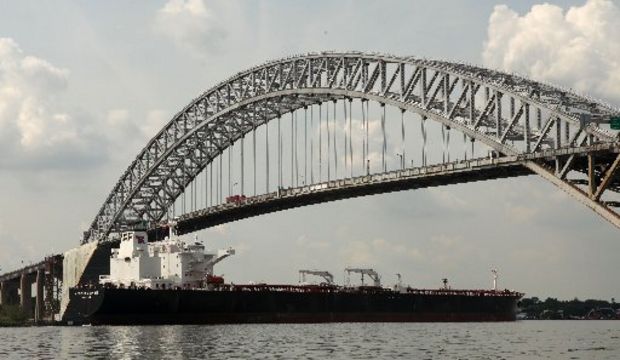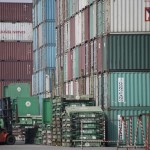For Port Authority Projects, Sweeney Wants Made in USA Steel

He said that maintaining a healthy domestic steel industry was also vital to the national security.
“We should be careful that a cost-analysis is done to make sure it takes into account jobs,” said Sweeney (D-Goucester), a vice president and general organizer with the International Association of Ironworkers union, whose members erect steel structures. “There are certain things this country has to have to protect ourselves and to be able to produce steel is very important.”
As with all bills that would impose restrictions on the Port Authority, identical legislation to Sweeney’s measure (S-2061) must also be adopted in New York State. He said he was still seeking a New York counterpart.
If Sweeney’s measure becomes law, it would apply to many of the projects slated under a $27.6 billion 10-year capital plan approved by the Port Authority in February.
The use of foreign steel in public projects became an issue in the region last year, when the Metropolitan Transportation Authority and the Port Authority allowed Chinese steel to be used for work on the Verrazano-Narrows and Bayonne Bridges.
Critics of Chinese-made steel, including the United Steelworkers union, complained that U.S. producers could not compete with mills in China, which pay workers as little as $15 a day and benefit from legal and financial support from the Chinese government. China is by far the world’s leading steel maker.
Sweeney said his legislation was prompted by a Star-Ledger article on the controversy in September.
The contractor for the Bayonne project, a partnership of Oklahoma-based Kiewit and the Swedish construction giant Skanska, eventually decided to use Italian steel instead of Chinese, along with some American steel.
The U.S. government already requires domestic steel to be used on public projects
that receive federal funds, and Sweeney said his bill would unburden those who pay bridge tolls by ensuring that Port Authority projects were eligible for those funds.
As in the rest of the country, steel manufacturing has been in decline in New Jersey for decades, and only a handful of operations remain, including MRP LLC in South Plainfield, which has supplied steel beams for the World Trade Center site, and a plant in Sayreville run by Gerdau Ameristeel.
The Port Authority declined to comment specifically on Sweeney’s bill. However, agency officials noted that the $1.5 billion Goethals Bridge replacement project is subject to a federal requirement that 99.9 percent of materials be produced domestically, while the agency’s own request for proposals on a $3.6 billion replacement of the Central Terminal Building at LaGuardia Airport calls for at least 51 percent domestic materials.
Daniel J. Ikenson, a trade policy specialist at the Cato Institute, said Sweeney’s measure was a misguided appeal to patriotism that would inflate the cost of public projects.
“It’s just common sense,” Ikenson said. ” Only a rudimentary understanding of supply and demand is needed to see that limiting competition for state procurement ensures that taxpayers get a smaller bang for their tax bucks.”
Last fall the agency said that it allowed the use of Chinese steel to expedite the Bayonne project, which is intended to allow larger container ships to reach terminals in Newark and Elizabeth once an expansion of the Panama Canal is completed next year.
But Sweeney rejected the notion that domestic steelmakers lacked the capacity or speed needed in such situations.
“This isn’t that hard to figure out,” Sweeney said. “If you know you’re going to build a bridge, you contact steel manufacturers in the United States and you say, I’m going to need this may tons of steel.’ They can do it.”



the buy American act needs to eliminate waivers,period